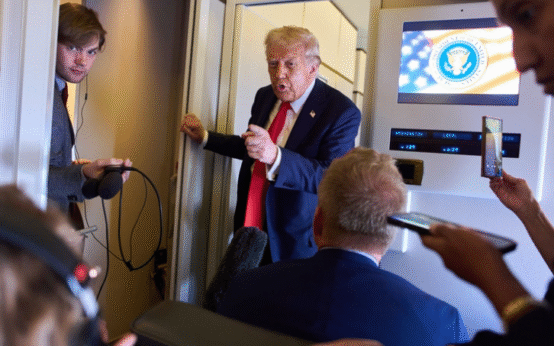President Donald Trump has signed a sweeping executive order aimed at removing bureaucratic hurdles for the U.S. commercial space industry. The move, announced on August 13, 2025, directs federal agencies to cut down environmental reviews and modernize regulations that govern rocket launches and spacecraft reentries. The White House says the changes will allow American companies like SpaceX, Blue Origin, and other emerging players to launch more quickly and at lower cost, helping the United States maintain its lead in space exploration and business.
Cutting Red Tape for a New Space Age
Under current procedures, rocket companies must often wait months sometimes more than a year for approvals due to environmental reviews under the National Environmental Policy Act and other outdated requirements.

The order also requires the FAA’s Office of Commercial Space Transportation to be headed by a political appointee, ensuring the office follows the administration’s vision for rapid commercial growth. Officials say the aim is to make the licensing process more predictable, less time-consuming, and better suited to the fast pace of modern rocket development.
Boost for SpaceX, Blue Origin, and U.S. Competitiveness
While the executive order does not mention any company by name, industry watchers note that SpaceX stands to gain the most. Elon Musk’s firm has faced repeated delays for its Starship test launches in Texas due to environmental concerns and lengthy review processes. Blue Origin, United Launch Alliance, Rocket Lab, and other launch providers will also benefit from a system that processes applications faster and schedules launches more efficiently.

Supporters of the change argue that with China, Russia, and other nations investing heavily in space programs, the United States must keep pace by giving its private sector more room to innovate and operate without unnecessary delays.
Continuation of Trump’s Space Policy
This latest move builds on Trump’s earlier efforts to reshape U.S. space policy. In 2018, his administration issued Space Policy Directive-2, which pushed for reducing barriers for private spaceflight companies. The administration has also favored public-private partnerships in NASA missions, from lunar exploration to Mars planning.
By directing federal agencies to streamline spaceflight rules again in 2025, Trump signals that commercial space development remains a priority in his vision for U.S. technological leadership.


 Trump Escalates Trade Pressure on Canada with Tariffs on Wood
Trump Escalates Trade Pressure on Canada with Tariffs on Wood  Elon Musk Supports Cancel Netflix Campaign
Elon Musk Supports Cancel Netflix Campaign  Hamas Says It Has Not Received Trump’s Plan
Hamas Says It Has Not Received Trump’s Plan  Kim Jong-un Open to Trump Meeting Without Denuclearization
Kim Jong-un Open to Trump Meeting Without Denuclearization  U.S. Envoy Reveals Depths of Trump’s Grudge with Canada
U.S. Envoy Reveals Depths of Trump’s Grudge with Canada  US judge tosses Trump’s $15 billion New York Times lawsuit
US judge tosses Trump’s $15 billion New York Times lawsuit